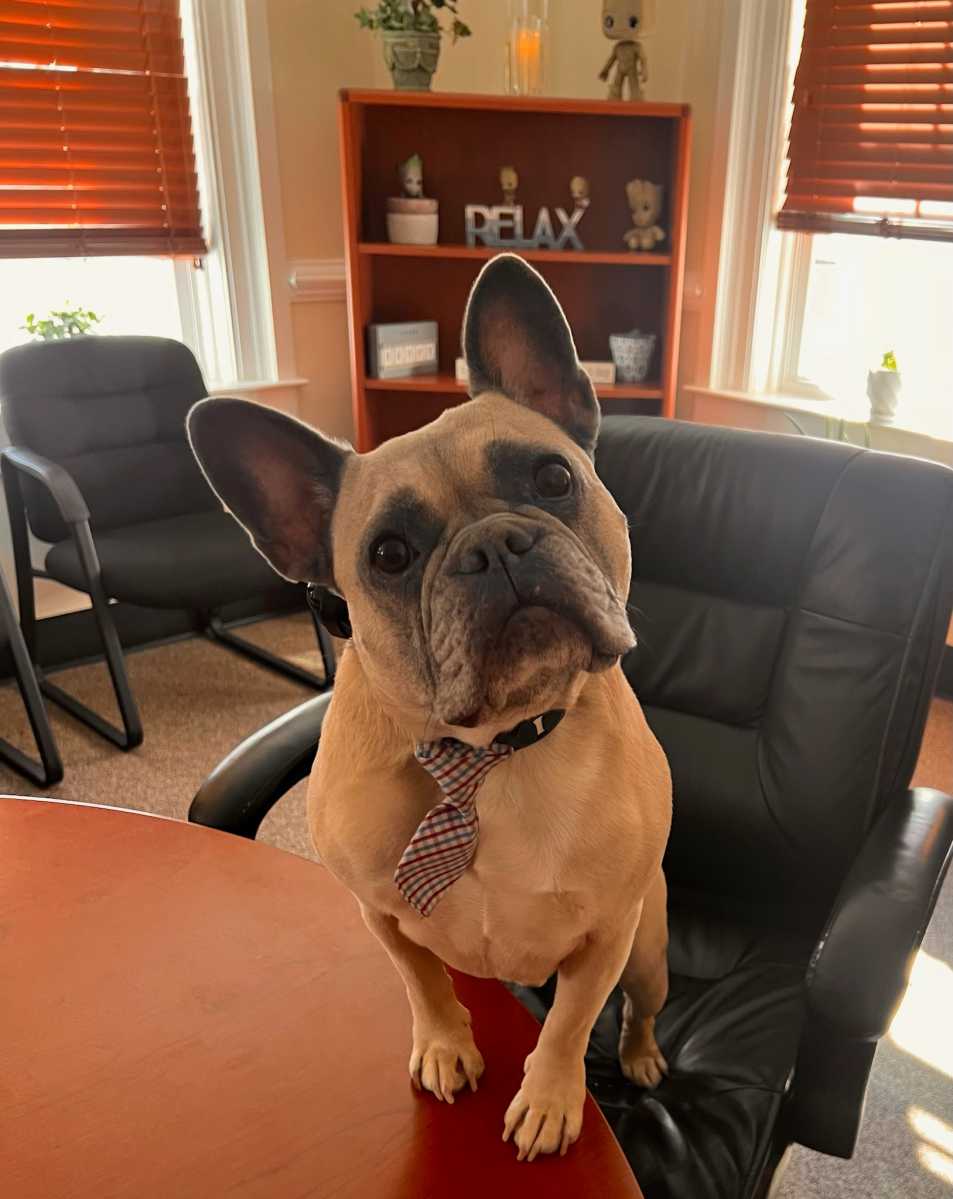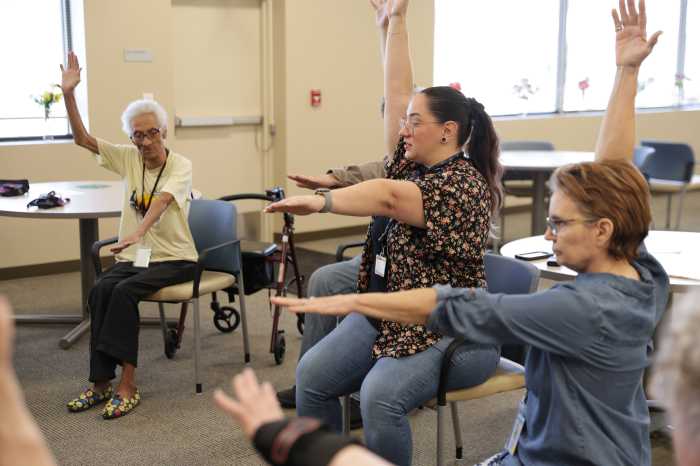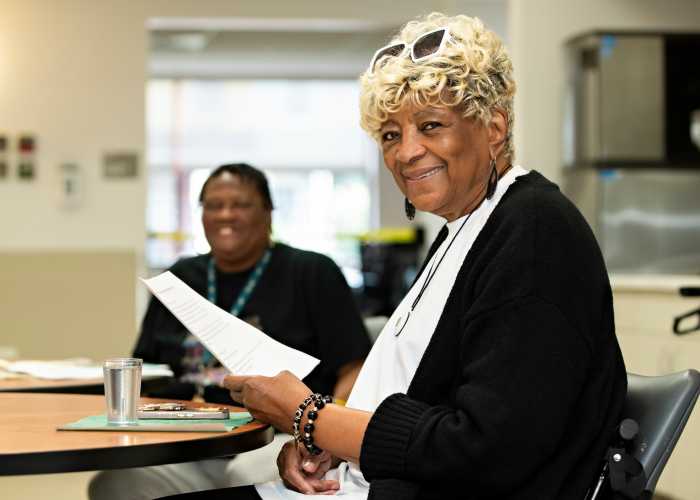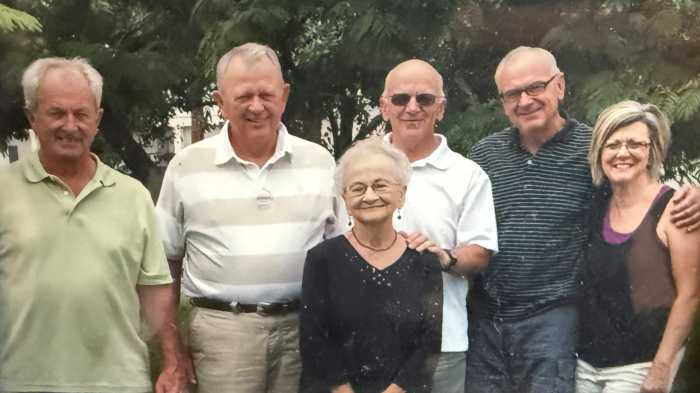The Livengrin Foundation is a well-established nonprofit that has spent decades providing personalized rehabilitation and detox treatments for individuals battling addiction. Known for its compassionate and knowledgeable staff, the foundation also boasts an unconventional leader — Chopper, an 8-year-old French bulldog therapy dog.
Chopper began his journey as a therapeutic companion at age two, attending behavioral school to prepare for his role. Now proudly serving as Livengrin’s CPO (Chief Puppy Officer), Chopper has his own email address and plays an active part in daily operations, from interacting with staff to meeting patients. He even encourages coworkers to share photos of their pets and discuss how these animals contribute to relaxation and emotional support.
“One of the best things about Chopper coming to work daily is seeing how everyone’s faces just light up as soon as he comes into the room,” says Livengrin CEO Christopher Francis, enthusiastically, about his canine therapy charge.
“He makes staff and patients happy. The effects Chopper has on a patient’s mental health are undeniable. Seeing someone come in after having hit rock bottom — struggling to find a sense of gratitude for something — then seeing this adorable puppy; their entire affect changes in seconds. Everyone’s moods lift just by having Chopper near.”
According to Chopper (we told you he has his own email address), people count on dogs for loyalty and unconditional love, “So it’s easy for me to form quick connections with those who need love and support,” he writes. “My job lets me spread happiness and smiles and make a positive impact. People who have been hurt and struggle with trust open up to me without hesitation because they know the love that comes from a puppy is unconditional.”
Upon getting a long-desired French bulldog as an eight-week-old pup, Livengrin’s Francis began bringing his new fur baby to work. There, it was love at first sight for anyone who came in contact with Chopper. Not long after Francis witnessed Chopper’s effect on his patients and staff, he took his dog to training – at first, with humorous results.
“Chopper is actually on YouTube as an example of a dog that resists training,” laughs Francis.
After completing the initial program, Francis continued Chopper’s training so to make the pup a certified therapy dog, interacting with staff and patients on a regular basis. “Chopper goes to our morning staff meeting, then heads out into the community to see our patients, as well as to the hospital-like setting of detox and our rehab sessions, spending time with everyone in those levels of care.”
“Some people identify with Chopper because they miss their animals at home while they’re in detox, or they lost their cherished pets from their past, or they just crave connection,” says Francis. “Pets provide comfort and support for people who face challenges in connecting with other people. Pets reduce feelings of loneliness and despair. Studies have even shown that pets are responsible for reduced blood pressure and increased self-esteem. Chopper just has a way of instantly opening and softening people up.”
“When I’m leaving home in the morning, if I ask him if he wants to go to work, Chopper starts freaking out – he can’t wait to get to Livengrin,” Francis adds. “And when we get there, he follows every command… and there’s always at least one patient who begins crying once they get on the floor with Chopper, because they’re so happy.”
Though trained and therapy dogs are great to have on board for detox and therapy sessions, just having a dog to love and be with is a comfort. “We recommend that patients in detox take care of themselves when they’re going through therapy rather than training a dog, but you would be surprised how many people already have dogs at home, and are anxious to get back to having an animal to love.”
Livengrin is now partnering with a no-kill cat sanctuary, Bingo’s Foundation, in order to provide a “safe space for cats until they are adopted,” says Francis. This additional Livengrin program (at its Bensalem location) is also beneficial for in-house patients who love cozying up to cats.
“Emotional support animals, dogs and cats, are always heartwarming – for healthcare professionals who request to be in the rooms with Chopper, and our patients,” says Francis. “That contact, having them lay on you and reacting gently to your touch… it’s the best kind of release.”
Sponsored content produced in partnership with Livengrin Foundation.




























